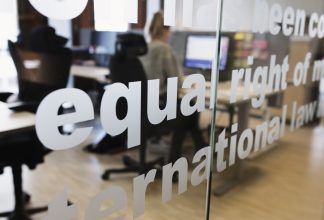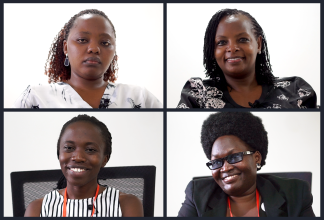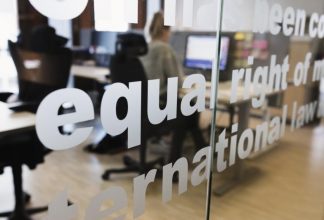How to prepare for danger
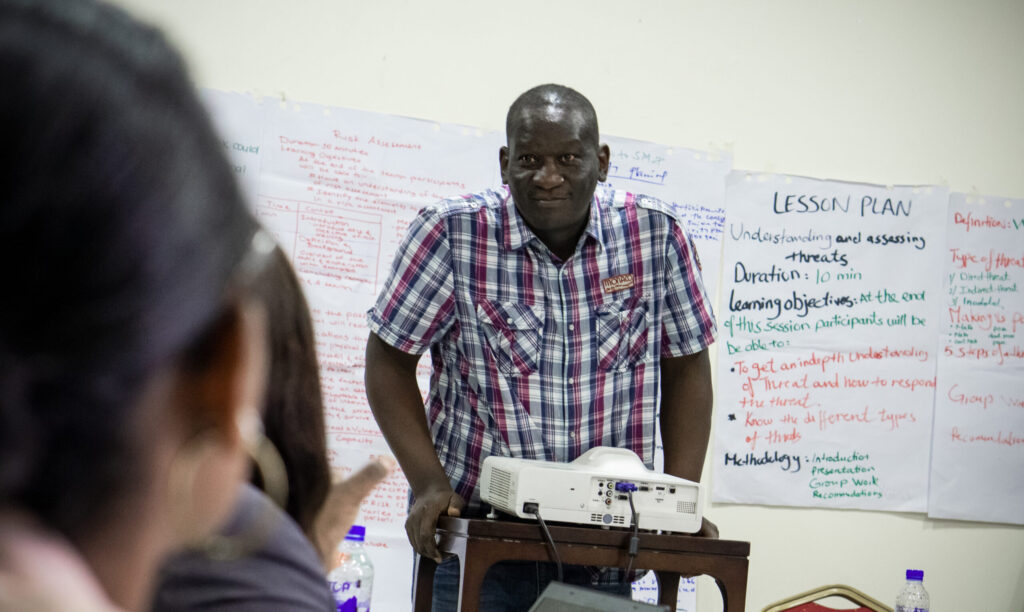
In an undisclosed location in East Africa sit thirteen human rights defenders. They work with one of the most dangerous things a person can do. And that is exactly why they are here. For seven weeks, they will train in physical security with Civil Rights Defenders. The teacher, Ignatius, looks at the group and asks them what to do when in danger. The group echoes, “You run. You run, run, run!”
Spread out around a U-shaped table formation around a conference table in East Africa sit Compassion, Opinionated, Respectful, and Bad (in a good way) together with nine other human rights defenders. They will soon become physical security trainers, a subject most of them knew very little about just a couple of weeks ago.
“Before I came here, I had no idea what physical security meant. Now I can do my own risk assessments, analyse threats, and know how to take protection measures for myself, my colleagues, and my community,” says Open Minded, who works with women’s rights in Somalia.
Everyone in the room goes under different adjectives instead of their first names. Since most of them are used to being on their guard and careful with what they say, the group was very quiet when starting the week. To get around that, they decided not to use their own names. Instead, they came up with adjectives that described one another. Like, Compassion, Opinionated, and Bad (“but in a good way”).
“Many here were very hesitant at first and found it difficult to adjust. I was able to handle it myself, and I have been giving my opinion from the start because I think that it is important,” says Open Minded.
“They can identify us”
Igniting Ignatius is in charge of the training. He is an experienced security trainer from Kenya and has been doing these types of trainings for many years.
“We have new people in the room. And they want to take photos of us. Should we let them? Let’s do a risk assessment on that. What are the risks, and what are the possible capacities?”
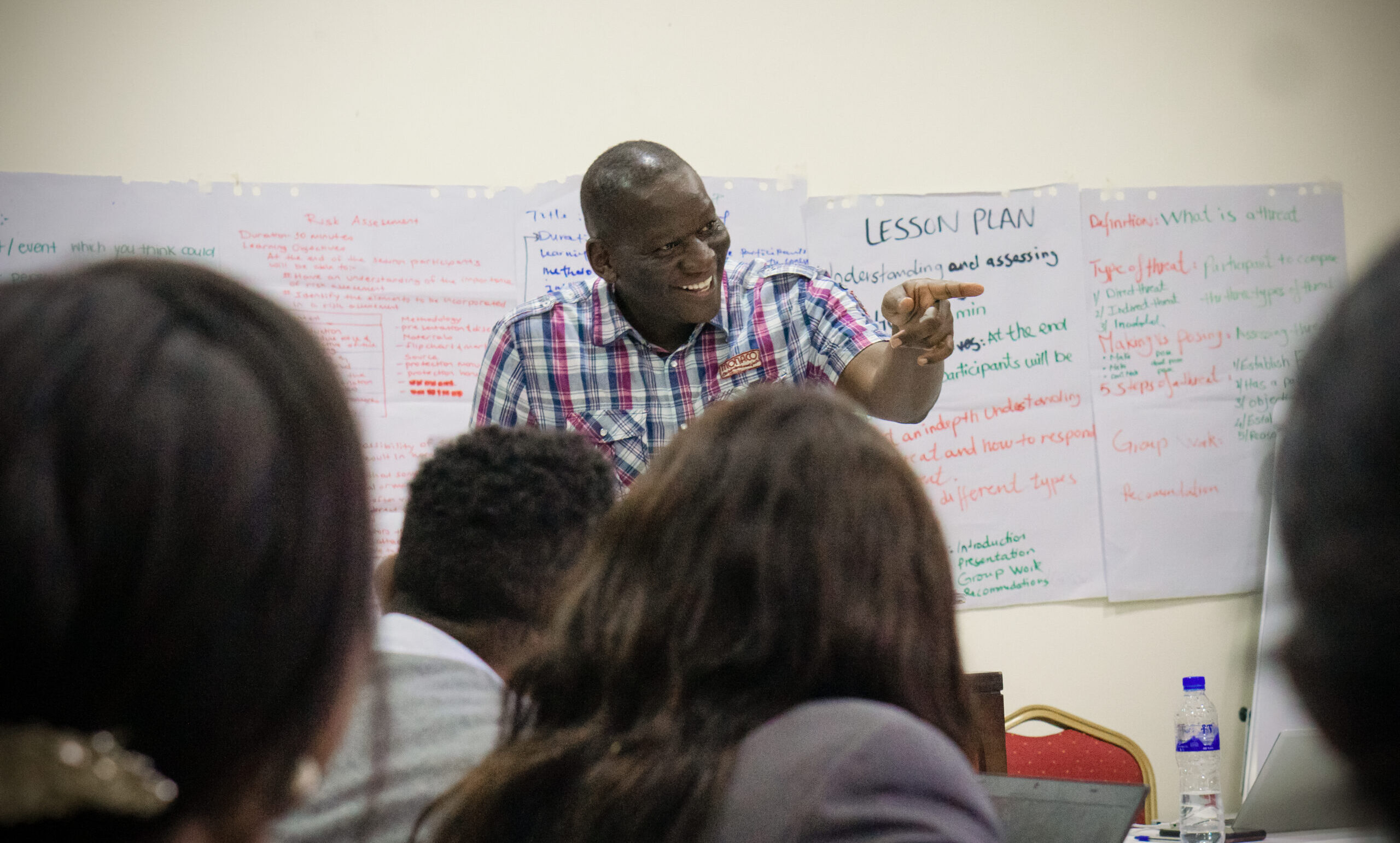
Igniting wants to know if there are any upsides to having the training session photographed and communicated to people on the outside. He starts distributing the word between the raised hands in the room.
“One risk is that people can identify us in the photos,” says Compassion.
“They can identify our location,” says Respectful.
“They will be able to see what we have written in the exercises and posted on the walls,” says Bad (in a good way).
Igniting writes everything down on a big flipchart in the front of the room. The room is covered with papers from earlier this week.
“Good. Good. And what is a potential capacity?”
“People will see that we network and cooperate,” says Social.
“We can prove to the donors that we have met and had the training,” says Senior.
“So, what do you say? Can we let them take photos,” asks Igniting.
The group agrees to have pictures taken as long as no one can be identified without giving their explicit consent. Photos taken from the back are okay.
His message is clear
This is the final day they will all be together before returning to their respective countries. The topic for today is “Women human rights defenders.” Now, towards the end of the week, it is impossible to tell that they started off in hesitant silence. The words fly across the room, and they soon get into a heated discussion about whether men are victims of domestic abuse in the same way women are.
“We have zero tolerance for people who have violated women.”
“Domestic violence is just a euphemism for male violence,” says Igniting. And his message is clear.
“We must put women human rights defenders on top. And we have zero tolerance for people who have violated women.”
During the course, the participants learn how to do situation analysis, make risk assessments, draft security plans and implement them. They are also taught how to train others. The purpose of the 7- week programme in physical security is that the participants themselves will become security trainers and continue to share what they have learned with other human rights defenders in their communities. Within the next few months, the trainers will reach 130 human rights defenders at risk with their trainings.
“This has been an eye-opener for many of the participants, and I hope we see a ripple effect in Sudan, Somalia, and Ethiopia when they return home,” says Igniting.
And the training is well needed. Being a human rights defender is often associated with risks, whether you fight for women’s rights, the environment, LGBTI rights, or democracy. When standing up against injustice, threats, harassment, and violence, follow in your footsteps.
“In Sudan, with the political changes and the tribal conflicts, the situation is a bit shaky. Our work defending human rights isn’t loved. I can’t wait to return home and apply what I have learned here. Identify threats, make a plan and assess our vulnerabilities and capacities,” says Love.
Protecting those who have the courage to fight
By the end of the day, the time has come for Igniting to round off the week. They will continue with the course online and conduct field training under the digital supervision of Igniting, but this is the last time they will meet in person.
“I don’t want you to call me teacher anymore. From now on, we are colleagues. We are equals. And I would recommend every one of you if someone was looking for a security trainer,” says Igniting.
After this week, Igniting is going to his own debriefing sessions to prevent what is known as “curious trauma” or “compassion fatigue”. It has been an intense week, and he has listened to many harrowing stories and accounts of violations.
“I am a human being. I get affected. But if we stop doing this work, we will allow the continued violation of human rights in our region. We must ensure these people are protected so they can continue doing their work,” says Igniting Ignatius.
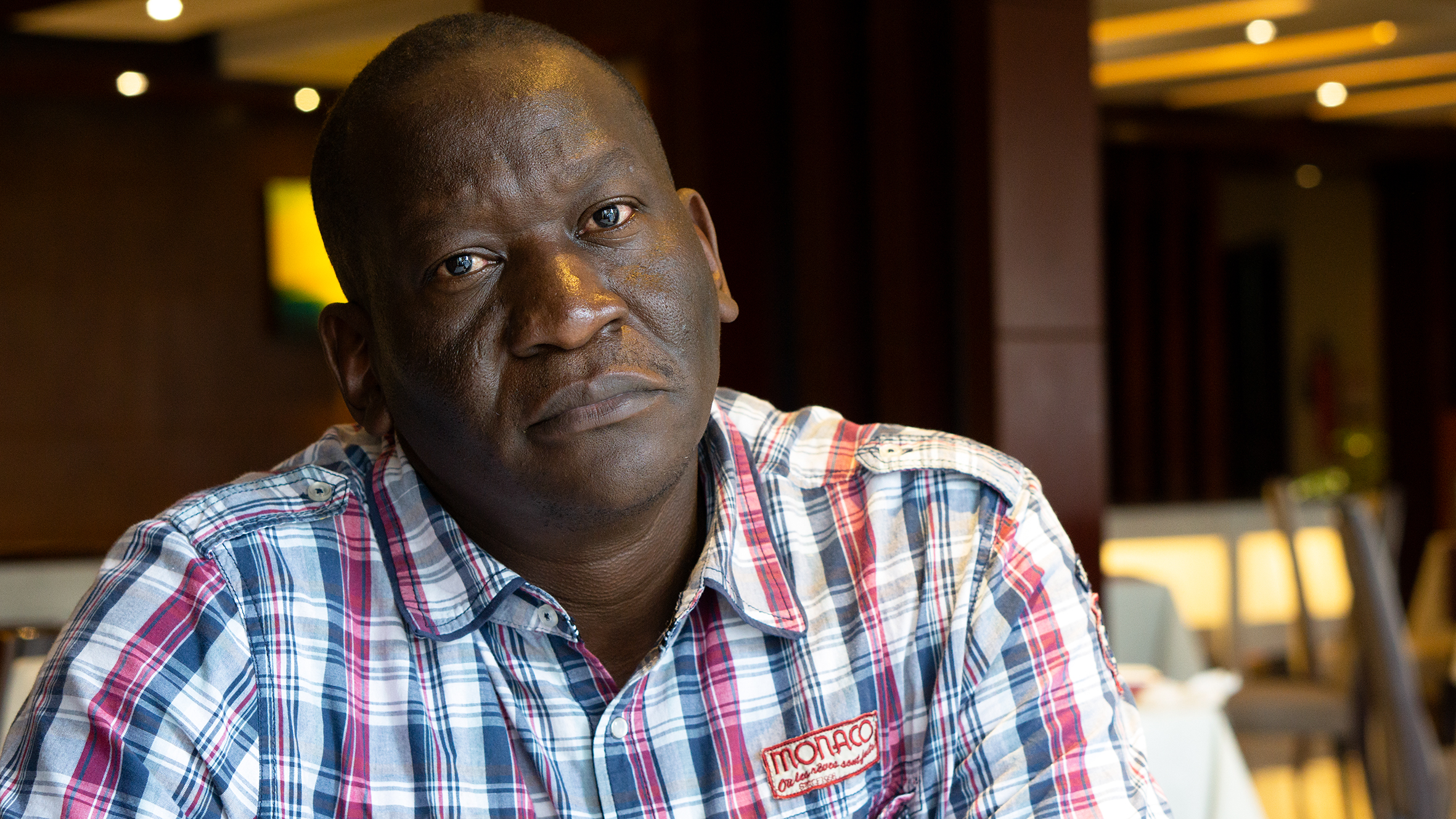
This training is part of the Consortium to Promote Human Rights, Civic Freedoms and Media Development (CHARM) Africa project and its ongoing work to protect and expand the space for civil society organisations and human rights defenders in the region, which includes a special emphasis on frontline actors working on issues related to gender, labour, LGBTI+, and environmental and indigenous rights, as these groups are most likely to bear the brunt of closing civic space. CHARM is funded by the Swedish International Development Cooperation Agency, SIDA.
